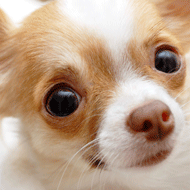New genetic testing initiative announced

The emergence of new DNA tests and testing laboratories has made choosing quality testing providers and DNA tests challenging.
A new international genetic testing initiative that will provide practical support to vets, dog breeders and owners has been announced by the International Partnership for Dogs (IPFD).
In recent years, the emergence of new DNA tests and testing laboratories has made choosing quality testing providers and DNA tests incredibly challenging.
Joining forces with an array of stakeholders in dog health, the IPFD’s ‘Harmonisation of Genetic Testing for Dogs’ initiative is set to provide practical support to address these challenges. The initiative will take the form of an open access, searchable and sustainable online resource that will:
• Catalogue information provided voluntarily from commercial test providers for genetic testing in dogs
• Describe expertise, quality assurance, activities and resources of the test providers
• Host expert panel reviews of genetic tests, their reliability, and applicability
• Coordinate a programme for standardised proficiency testing and potentially peer review and audit
• Collate/assemble existing and new resources for genetic counselling and education, and provide the foundation for future developments.
“With no existing national or international standards of accreditation, or standardisation oversight group, there is a growing need for a reliable third party neutral organisation which can provide guidance surrounding test reliability, laboratory quality assurance processes and procedures, test applicability by breed, and provide advice regarding interpretation and best use of genetic test results,” said a spokesperson for the Kennel Club, a founding partner of the IPFD.
“This is needed to support consumer confidence in DNA testing, educate consumers in the use of these tests, utilise these tests effectively as tools to reduce the incidence of inherited disease, and to reduce redundant international efforts. The IPFD will work to coordinate and consolidate expertise, as well as ongoing and new work to increase the availability of resources to consumers.”
The initial phase of the initiative is to develop a working retype of the online resource. Both the prototype and the final output will be hosted at www.dogwellnet.com.
The initiative will be led by IPFD CEO Brenda Bonnet and project director Aimee Llewellyn Zaidi, who was previously head of health and research at the Kennel Club.



 The Veterinary Medicines Directorate (VMD) is inviting applications from veterinary students to attend a one-week extramural studies (EMS) placement in July 2026.
The Veterinary Medicines Directorate (VMD) is inviting applications from veterinary students to attend a one-week extramural studies (EMS) placement in July 2026.